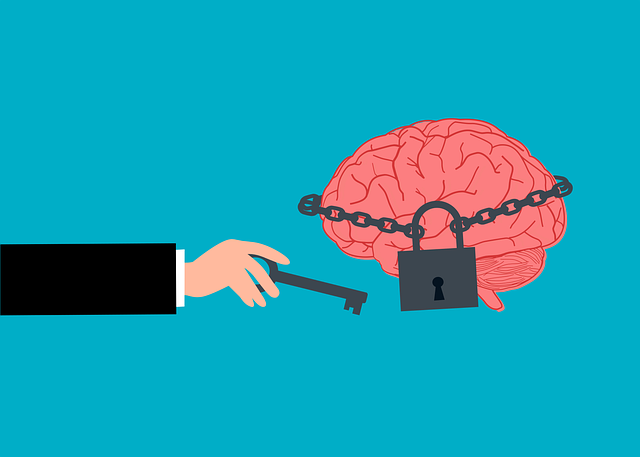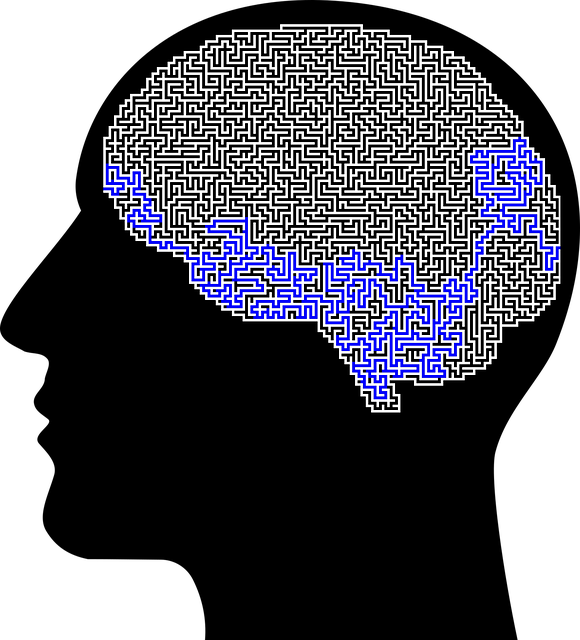In recent years, there's been a growing demand for effective therapy tailored to adults' mental wellness needs. Traditional talk therapy often misses deeper somatic aspects of mental distress, leading to the integration of holistic healing methods like Somatic Experiencing (SE) into coaching programs. SE combines self-awareness exercises and bodily awareness practices to address trauma or stress stored in the body, enhancing emotional regulation and fostering lasting positive changes. Combining SE with emotional regulation techniques and social skills training significantly improves mental wellness coaching outcomes by empowering individuals to navigate challenges effectively while reducing feelings of isolation. Measuring success through self-reported improvements, enhanced resilience, and developed coping skills is crucial, alongside ethical practices like confidentiality and informed consent. A well-structured podcast series can track progress and promote mental health awareness.
In today’s fast-paced world, prioritizing mental wellness is more crucial than ever. This article explores the development of mental wellness coaching programs tailored to meet the unique needs of adults. We delve into growing awareness about adult mental health, highlighting the integration of powerful therapeutic approaches like Somatic Experiencing. By combining evidence-based practices with innovative coaching models, these programs offer transformative therapy for adults seeking holistic well-being. Discover key strategies for success and ethical considerations in this emerging field.
- Understanding Adult Mental Wellness Needs: A Growing Awareness
- The Role of Somatic Experiencing in Coaching Programs
- Designing Effective Therapy Models for Coaches
- Integrating Evidence-Based Practices into Coaching Sessions
- Measuring Success and Ethical Considerations in Mental Wellness Coaching
Understanding Adult Mental Wellness Needs: A Growing Awareness

In recent years, there has been a growing awareness and understanding of adult mental wellness needs, driven by an increasing recognition that mental health issues do not discriminate based on age. As society becomes more attuned to the complexities of human emotional experiences, the demand for effective therapy for adults has risen significantly. Traditional talk therapy, while valuable, may not always address the deeper somatic aspects of mental distress. This is where Somatic Experiencing and other similar therapeutic approaches come into play, offering crisis intervention guidance that goes beyond words alone.
The evolution in mental wellness coaching programs reflects a broader shift in mental health policy analysis and advocacy, with a growing emphasis on holistic healing methods. By integrating self-awareness exercises and somatic practices, these programs cater to the diverse needs of adults seeking support. This not only enhances their ability to navigate personal challenges but also underscores the importance of addressing mental wellness as an integral part of overall well-being.
The Role of Somatic Experiencing in Coaching Programs

Somatic Experiencing (SE) has emerged as a powerful therapeutic approach that plays a pivotal role in modern mental wellness coaching programs. This method focuses on helping adults process and release traumatic memories or stressful events stored in the body, addressing the mind-body connection. By combining psychotherapy with bodily awareness, SE enables clients to regain control over their emotional responses and create lasting positive changes.
In the context of a Mental Wellness Podcast Series Production or Mind Over Matter Principles, incorporating SE techniques can significantly enhance stress management strategies. Through guided exercises that encourage individuals to connect with their bodies’ physical sensations, SE helps uncover and release repressed emotions. This holistic approach not only empowers people to navigate their mental health journeys more effectively but also contributes to the overall success of coaching programs, fostering resilience and emotional well-being.
Designing Effective Therapy Models for Coaches

In designing effective therapy models for mental wellness coaches, it’s crucial to incorporate approaches that resonate with adult learners and address their unique needs. Therapy for adults should move beyond traditional talk therapy, integrating practices like Somatic Experiencing to facilitate emotional healing processes. This approach focuses on the body’s response to traumatic or stressful events, helping clients develop a deeper understanding of their emotions and physical sensations. By combining somatics with techniques in emotional regulation, coaches can guide individuals towards more adaptive coping mechanisms.
Additionally, incorporating social skills training within these models is essential for fostering connections and enhancing support networks. This component equips individuals with the necessary tools to navigate interpersonal relationships effectively, promoting a sense of belonging and reducing feelings of isolation. Tailoring therapy models to address emotional regulation, somatic experiences, and social skills can significantly contribute to the overall success of mental wellness coaching programs.
Integrating Evidence-Based Practices into Coaching Sessions

Integrating evidence-based practices into mental wellness coaching sessions is paramount for effecting positive change. Techniques such as Somatic Experiencing, which focuses on resolving trauma responses, have been shown to be transformative in therapy for adults dealing with stress and burnout. By combining these practices with coaching, professionals can help clients gain insights and develop coping mechanisms that extend beyond talk therapy.
Through structured sessions, coaches can guide individuals through exercises designed to improve mindfulness, enhance self-awareness, and cultivate resilience—key components of Stress Management. The integration of Mind Over Matter principles empowers clients to take a proactive approach to their mental health, fostering an environment where they can learn to navigate challenges with greater ease and flexibility.
Measuring Success and Ethical Considerations in Mental Wellness Coaching

Measuring success and ethical considerations are paramount in mental wellness coaching, especially when integrating therapeutic modalities like Somatic Experiencing (SE) for adults. Success can be multifaceted, ranging from client self-reported improvements in mood and reduced symptoms to increased resilience and coping skills development. Ethical considerations include maintaining confidentiality, ensuring informed consent, and adhering to professional standards.
A well-structured Mental Wellness Podcast Series Production can effectively track progress and promote mental health awareness. Through regular assessments and feedback mechanisms, coaches can gauge the impact of their interventions. Moreover, openly discussing ethical boundaries and practices during these podcasts fosters transparency and trust with clients, enhancing the overall therapeutic experience.
Mental wellness coaching programs are evolving to meet the growing demand for adult therapy, with a focus on evidence-based practices. Integrating somatic experiencing techniques offers a unique and effective approach, addressing both physical and mental aspects of an individual’s well-being. By designing tailored therapy models and embracing ethical considerations, coaches can create supportive environments that foster meaningful change. This comprehensive approach to mental wellness coaching ensures that individuals receive the care they need to navigate life’s challenges, ultimately enhancing their overall health and happiness.














